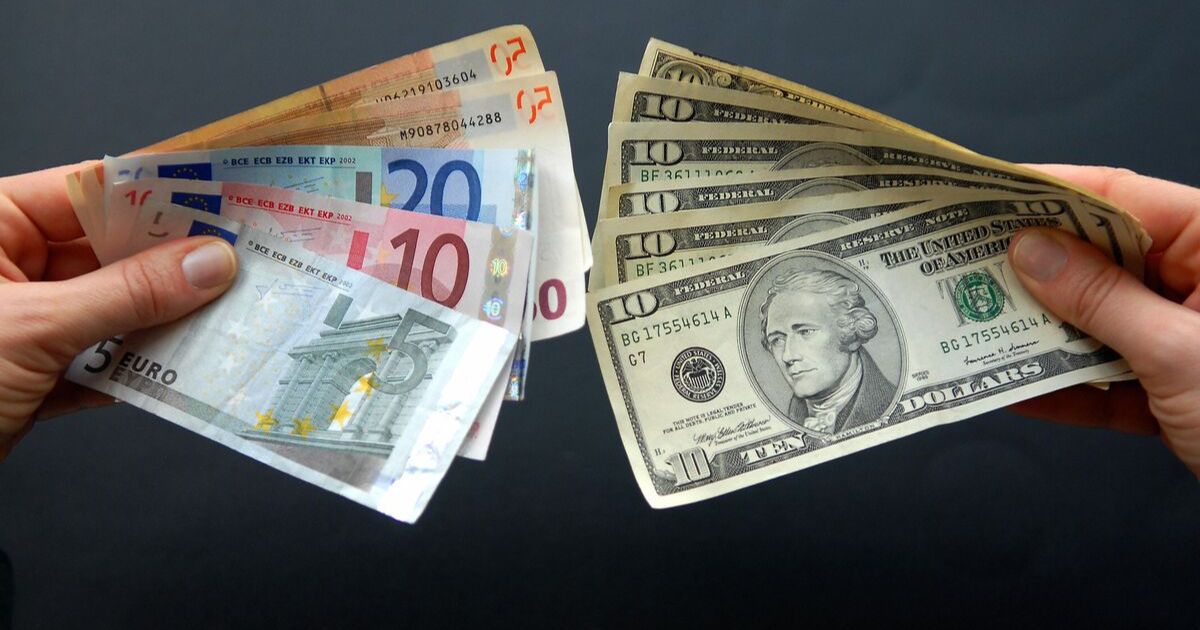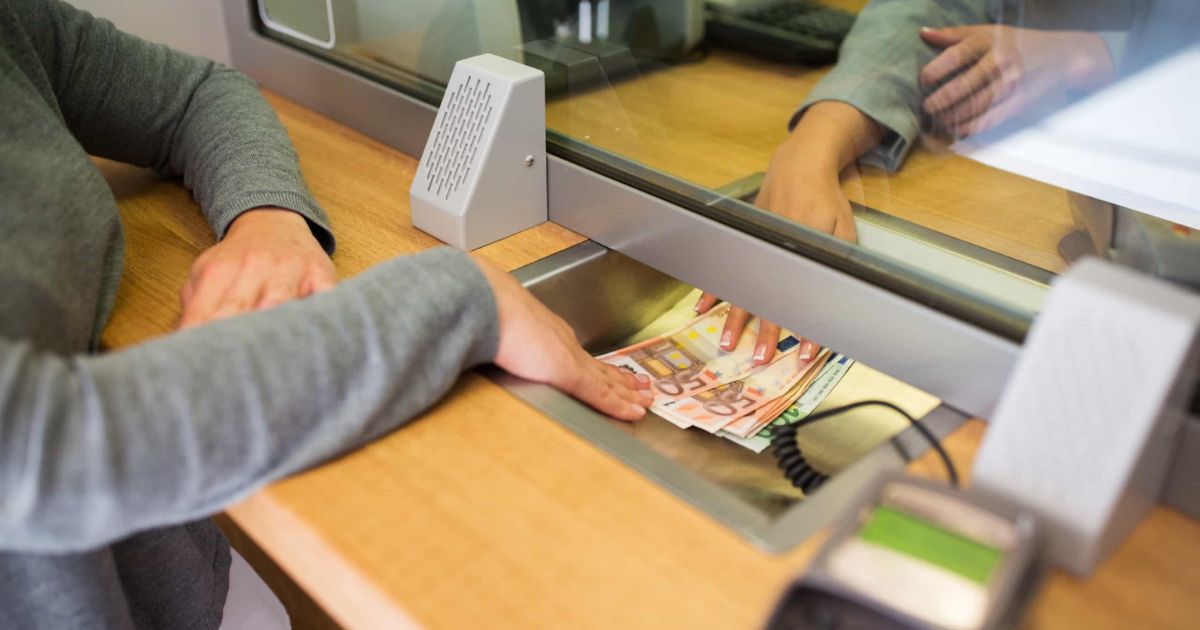Currency exchange involves the conversion of one country’s currency into another, facilitating international trade and travel. Exchange rates, determined by market forces, dictate the value of one currency against another. Banks, financial institutions, and exchange services perform these transactions
Currency exchange seamlessly converting your dollars into euros for a dream European vacation or facilitating global trade with the click of a button. Currency exchange makes this possible, powering international travel and commerce. Ever wondered how fluctuating exchange rates impact your money’s value abroad? Discover the intricate world where economies collide and your currency’s worth is determined.
Currency Exchange is the process of converting one currency into another, crucial for international travel, trade, and investment. Exchange rates fluctuate based on economic factors, supply and demand, and geopolitical events. Banks, forex brokers, and online platforms facilitate these transactions, offering various services and rates. Understanding currency exchange can help individuals and businesses optimize their financial decisions.
Navigating the World of Currency Exchange
In today’s globalized world, the exchange of currencies has become an integral part of international trade and travel. From multinational corporations to individual travelers, everyone relies on currency exchange services to facilitate seamless financial transactions across borders. If you’re considering venturing into this lucrative industry, understanding the intricacies of currency exchange is crucial. In this comprehensive guide, we’ll explore the essential steps to starting a successful currency exchange business.
Laying the Groundwork
Before embarking on your entrepreneurial journey, it’s imperative to conduct thorough market research. Analyze the demand for currency exchange services in your target area, taking into account factors such as proximity to international airports, seaports, and popular tourist destinations. Identify your potential customer base, including businesses, travelers, and expatriates, and tailor your services accordingly.
Familiarize yourself with the local and international regulations governing currency exchange operations. These regulations may vary depending on your location, so it’s essential to stay compliant with relevant laws and obtain the necessary licenses and permits.
Establishing a Solid Business Plan
A well-crafted business plan is the foundation of any successful venture, and the currency exchange business is no exception. Your business plan should outline your company’s vision, mission, and objectives, as well as a detailed financial analysis, including startup costs, projected revenue, and potential risks.
Consider factors such as the location of your physical storefront (if applicable), staffing requirements, technology needs, and marketing strategies. Additionally, assess the competition in your area and develop a unique value proposition that sets your business apart.
Sourcing Funds and Securing Partnerships
Starting a currency exchange business can be capital-intensive, as you’ll need to maintain a substantial inventory of various currencies. Explore various funding options, such as personal savings, loans, or potential investors. Consider seeking partnerships with established financial institutions or collaborating with travel agencies, hotels, or other businesses that may benefit from your services.Building strategic alliances can not only provide access to additional funding but also open doors to new customer segments and expand your reach.
Setting Up Your Operation
Once you’ve secured the necessary funds and partnerships, it’s time to establish your physical or online presence. If opting for a physical storefront, choose a strategic location with high foot traffic and visibility. Ensure that your premises comply with security and accessibility standards, as handling large sums of currency necessitates stringent safety measures.
Alternatively, if you plan to operate an online currency exchange business, invest in a user-friendly and secure website or mobile application. Integrate robust cybersecurity measures to protect your customers’ sensitive financial information.
Building a Reliable Supply Chain
The backbone of your currency exchange business lies in maintaining a steady supply of various currencies. Establish relationships with reputable banks, financial institutions, and money transfer organizations to ensure a consistent flow of currency inventory.Develop robust procurement processes and implement inventory management systems to track your currency holdings accurately. Stay informed about fluctuations in exchange rates and adjust your pricing accordingly to remain competitive while maintaining profitability.
Providing Exceptional Customer Service
In the currency exchange industry, customer service is paramount. Ensure that your staff is knowledgeable, courteous, and able to communicate effectively with customers from diverse backgrounds. Implement training programs to keep your team up-to-date with industry best practices, regulatory changes, and emerging trends.Consider offering additional services, such as travel insurance, money transfer, or foreign currency prepaid cards, to enhance the customer experience and establish your business as a one-stop shop for all currency exchange needs.
Read More:
How To Start Real Estate Business
Building a Robust Infrastructure
Establishing a robust infrastructure is crucial for a successful currency exchange business. Invest in secure vaults or safes to store large amounts of cash and currency. Implement advanced security measures, such as surveillance cameras, access control systems, and armed guards, to safeguard your premises and personnel. Develop efficient cash handling protocols to ensure accurate and timely transactions.
Adopt cutting-edge technology, such as currency counting machines and rate display boards, to streamline operations and enhance transparency. Maintain meticulous records and implement strict anti-money laundering policies to comply with regulatory requirements and foster trust with customers and partners.
Cultivating a Skilled Workforce
Your employees are the face of your currency exchange business, and their expertise can significantly impact customer satisfaction and loyalty. Recruit individuals with a strong background in finance, accounting, or banking, as well as excellent communication and interpersonal skills. Provide comprehensive training programs to ensure your staff is well-versed in currency exchange regulations, risk management, and customer service best practices.
FAQs:
What licenses or permits are required to start a currency exchange business?
The specific licenses and permits required may vary depending on your location and jurisdiction. Typically, you’ll need a money service business (MSB) license, sales tax permit, and potentially other business licenses or registrations.
How much capital is required to start a currency exchange business?
The initial capital requirements can vary significantly based on factors such as the size of your operation, location, and inventory needs. Expect to invest a substantial amount to cover costs like rent, security measures, currency inventory, and staffing.
How do I ensure compliance with anti-money laundering regulations?
Implement robust know-your-customer (KYC) procedures, conduct thorough customer due diligence, maintain comprehensive transaction records, and report suspicious activities to the appropriate authorities.
What are the key factors to consider when choosing a location for a currency exchange business?
Consider areas with high foot traffic, such as airports, tourist hotspots, and business districts. Proximity to banks, hotels, and international travel hubs is also advantageous.
How can I differentiate my currency exchange business from competitors?
Offer competitive exchange rates, provide exceptional customer service, and consider additional services like money transfers or travel insurance. Leverage technology to streamline processes and enhance the customer experience.
Conclusion
Starting a currency exchange business can be a rewarding and lucrative endeavor, but it requires careful planning, execution, and a commitment to excellence. By conducting thorough market research, developing a solid business plan, securing the necessary funds and partnerships, establishing a reliable supply chain, and prioritizing exceptional customer service, you’ll be well on your way to success in this dynamic industry.
Currency exchange business is built on trust, integrity, and a deep understanding of global financial markets. Stay vigilant, adaptable, and committed to providing seamless and secure services to your customers. With dedication and perseverance, you can navigate the complexities of currency exchange and establish a thriving business in this ever-evolving financial landscape.
















1 thought on “How To Start Business Of Currency Exchange”